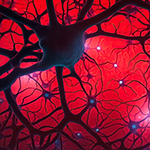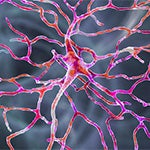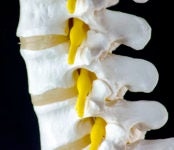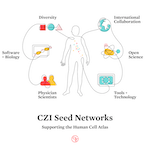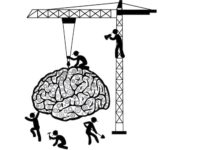Neuro Topics - Stem cells
SEARCH OTHER RESEARCH AREAS
August 29, 2024
Technological advances allow scientists to more rapidly create in vitro models of Parkinson’s disease using stem cells, in ways that could provide more personalized diagnostic and treatment methods. From Vikram Khurana and colleagues, co-first authors Isabel Lam and Alain Ndayisaba.
Original article in: Neuron >
December 7, 2023
Working with mice, HMS researchers have identified a potential new strategy for replacing retinal ganglion cells to treat glaucoma, one of the leading causes of blindness worldwide. Featured in HMS News From Petr Baranov and colleagues, first author Jonathan R. Soucy.
Original article in: PNAS >
October 27, 2023
Harvard MCB Department news article on new research from the lab of Amanda Whipple, first author Daniel Loftus, finding that differences in maternal and paternal genomes in embryonic stem cells shape gene expression in neurons.
Original article in: Genes and Development >
February 24, 2023
Harvard MCB Department news article on new research from Sharad Ramanathan and colleagues, first author Giri Anand. They cultivated stem cells to mirror the process of axial elongation in the developing embryo allowing them to see how the neural tube develops into the spinal cord.
Original article in: Cell >
February 3, 2020
Harvard Gazette article highlighting stem cell models of human spine development, coming from new research from the lab of Olivier Pourquié (co-first authors Margarete Diaz-Cuadros and Daniel E. Wagner).
Original article in: Nature >
December 19, 2019
Harvard Gazette article profiling McLean's Spirituality and Mental Health program, directed by David H. Rosmarin.
Original article in: Nature >
June 21, 2019
The Chan Zuckerberg Initiative (CZI) recently selected 38 collaborative science teams to launch CZI’s Seed Networks for a Human Cell Atlas projects, including a Harvard team focused on mapping cells of the human eye from birth to old age.
Original article in: Nature >
June 21, 2019
Wyss Institute scientists have developed chip technology that mimics the blood-brain barrier in humans. The new models will help researchers study drugs to treat cancer, neurodegeneration, and other diseases of the central nervous system.
Original article in: Nature Communications >
May 20, 2019
Chenjezo Grant Gonani wants to build culturally relevant mental health care
Original article in: Nature Communications >
April 30, 2019
Harvard Medical School receives $4.5 million for cannabinoid research from Harvard University from Charles R. Broderick, an alumnus of Harvard University and MIT.
Original article in: Nature Communications >
January 18, 2019
A new discovery opens doors to improving diagnostics and developing new therapy for majority of ALS patients
Original article in: Nature Neuroscience >
October 10, 2018
BCH Vector Blog post on research from the labs of Fred Alt and colleagues describing a new way to create customized mouse models for studying how specific genes influence brain development or function
Original article in: Nature >

